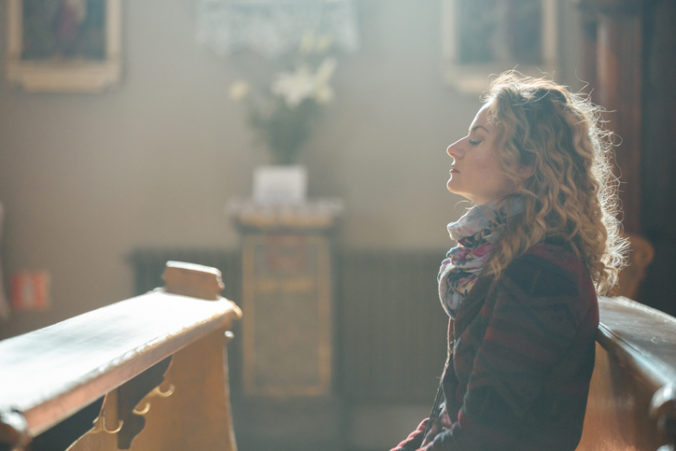Northern Ireland remains the most religious part of Britain or Ireland, according to new research published last month. The percentage of people who attend church every week in Northern Ireland – Protestant or Catholic – is greater than the number who attend Irish League football match over an entire year.
The report from Evangelical Alliance Northern Ireland reveals that 23pc of people in the North attend church services on a weekly basis and 35pc of pray every week. In Britain, weekly church attendance is only 9pc. In the Republic, weekly attendance was about 36pc in 2017 but that figure is now probably below 20pc, partly because many people got out of the habit of weekly attendance during the pandemic, but also because of a pre-existing downward trend.
Northern Ireland Catholics (28pc) are more likely than Protestants (23pc) to attend church at least once a week, according to Savanta, which carried out the research. The survey shows that 36pc of the general population attend church on a monthly basis or more, with 46pc of Catholics falling into this category and 32pc of Protestants.
Most of those who do not attend at all are well aware of services and church activities offered in their local area.
The report identifies three measures of strongly committed Christian practice: personal prayer, reading the Bible and attending church. Nine percent of the Northern Ireland population said that they do all of these practices every week. This figure is double that in England and Wales.
The Evangelical Alliance report is based on two surveys, conducted last year. The first poll was conducted by Savanta ComRes on a sample representative of the general population of Northern Ireland. The second survey was a self-selective online questionnaire created by the Evangelical Alliance and shared among their contacts. Some of the questions were the same.
The Savanta poll is the most significant survey of religion in the North in the last twenty years.
The poll found that 50pc of the Northern Ireland population would describe themselves as practicing Christians and about 400,000 people, corresponding to 21pc of the population, would describe themselves as ‘Evangelical Christians’.
This should not be interpreted in a strict denominational sense, as a substantial number of Catholics (38pc), including priests, also called themselves “evangelicals”.
“While we do not have the data to accurately chart what appears to a significant rise in evangelical Catholicism, this is a surprising finding that merits further research”, commented the sociologist Gladys Ganiel.
“Evangelicals” seem to mean a certain style of believing, within the different Christian denominations, that stresses a personal relationship with Jesus and praying based on the Bible.
An unexpected result is that 18–24 year-olds who are practising Christians are more likely to identify as evangelical than people aged 65+ (70pc versus 46pc). This is a growing trend.
The Savanta poll also covered social and political issues.
Two-thirds of the general population believe that there is a role for faith in society.
The self-selecting survey of practising Christians found that they are highly involved in volunteering, with 55pc taking part in charitable activities run by their churches at least once a week and 31pc in initiatives outside their church several times a year.
Practising Christians differ significantly from the general population topics such as abortion, same-sex marriage or immigration.
Almost all Christians (92pc) disagree or strongly disagree that abortion should be available for any reason. In contrast, only 34pc of the general population holds the same position.
Almost all Christians (96pc) disagree or strongly disagree that churches should be compelled by the government to perform same-sex marriages, while a much smaller proportion (40pc) of the general population has similar views.
Eighty-one percent of Christians in the survey agree or strongly agree that asylum seekers, refugees and other newcomers should be supported in practical ways and made to feel welcome, compared to 56pc of the general population.
As time goes on, and the general population becomes less ‘culturally Christian’, bigger differences between practising Christians and the rest of society will probably emerge.

















